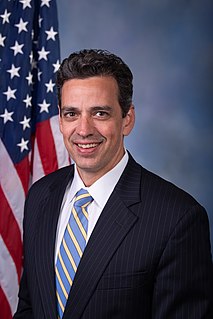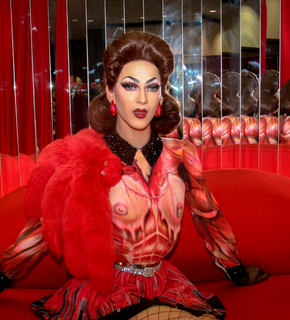A Quote by Whitfield Diffie
If you say to people that they, as a matter of fact, can't protect their conversations, in particular their political conversations, I think you take a long step toward making a transition from a free society to a totalitarian society.
Related Quotes
By virtue of the way it has organized its technological base, contemporary industrial society tends to be totalitarian. For "totalitarian" is not only a terroristic political coordination of society, but also a non-terroristic economic-technical coordination which operates through the manipulation of needs by vested interests.
[T]here are, at bottom, basically two ways to order social affairs, Coercively, through the mechanisms of the state - what we can call political society. And voluntarily, through the private interaction of individuals and associations - what we can call civil society. ... In a civil society, you make the decision. In a political society, someone else does. ... Civil society is based on reason, eloquence, and persuasion, which is to say voluntarism. Political society, on the other hand, is based on force.
Because everybody lies. It's part of living in society. Don't get me wrong-I think it's necessary. The last thing anyone wants is to live in a society where total honesty prevails. Can you imagine the conversations? You're short and fat, one person might say, and the other might answer, I know. But you smell bad. It just wouldn't work. So people lie by omission all the time. People will tell you most of the story...and I've learned that the part they neglect to tell you is often the most important part. People hide the truth because they're afraid." -Jo
If I walk into a place, a party, say, and there's a bookshelf, I immediately gravitate toward it. Unless there's a bar. But even then, it's only a matter of a few rounds before I make my way to the bookshelf. If there are good books on it, I may never leave the spot all night. Anybody I really want to talk to is going to make his or her way to that bookshelf sooner or later, anyway, right? Books are a nexus. They start conversations, and they continue conversations, and they make people better conversationalists. I have not found this to be the case with Iron Chef, or even alcohol.
If a poet has any obligation toward society, it is to write well. Being in the minority, he has no other choice. Failing this duty, he sinks into oblivion. Society, on the other hand, has no obligation toward the poet. A majority by definition, society thinks of itself as having other options than reading verses, no matter how well written. Its failure to do so results in its sinking to that level of locution at which society falls easy prey to a demagogue or a tyrant. This is society's own equivalent of oblivion.
Through the years, through my own conversations, through my own weird obsessions, I think I have developed some very deep politics of political knowledge - and I think I have huge blind spots, too - which I have tried to build not necessarily through traditional interviews so much as it is conversations and a lot of research and reading.
There are some conversations that are undeniably improved when the rule going in is that you have to stand behind what you say and have to wear a name tag when you do it. But that's certainly not all conversations. People might be prepared to ethically stand behind what they say, but might be in a position that they can't afford to lose their house over it. Speech shouldn't just be for people with lawyers.





































